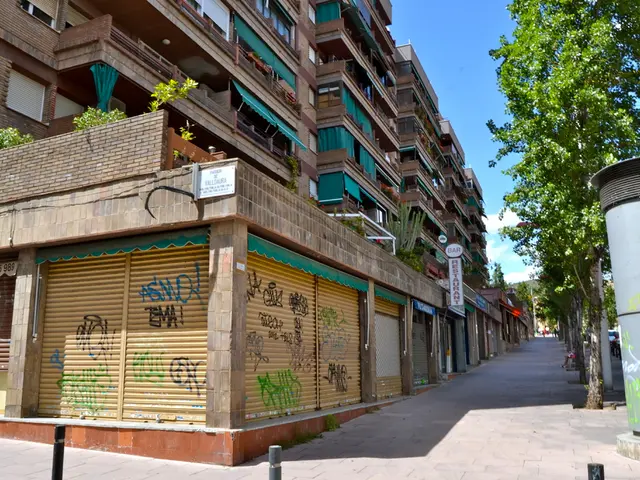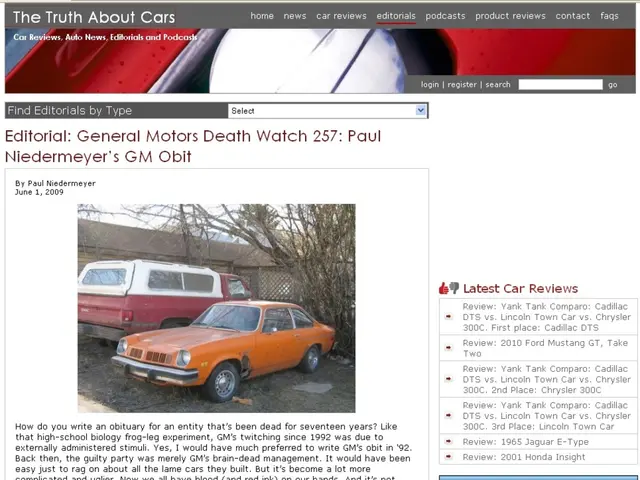Inquiry concerning aluminum.
In the heart of Germany, Rhein-Kreis Neuss is making strides in modernizing its aluminum industry while keeping its community informed through a free newsletter. This digital platform offers in-depth information about social developments, culinary arts, art, and culture in Neuss.
Subscribing to the newsletter is an excellent way to stay updated on the district's progress towards energy-efficient and carbon-neutral aluminum production. As one of the largest European sites for the production and processing of aluminum, Neuss is actively working to strengthen its industry as part of structural change and climate change efforts.
The district's pursuit of carbon neutrality is multifaceted, encompassing several key strategies:
- Inert Anodes and Clean Energy Sources: Transitioning from traditional carbon anodes to inert anodes can significantly lower carbon footprints, as they do not emit CO₂ during electrolysis and have lower electricity consumption.
- Utilizing Low-Carbon Electricity Supply: Access to abundant, carbon-free electricity is crucial. Rhein-Kreis Neuss could leverage renewable electricity sources or even explore partnerships for nuclear-generated clean electricity.
- Focusing on Aluminum Recycling: Recycling aluminum offers substantial energy savings and cost reductions. Increasing recycled aluminum input to the production process supports a circular economy and diminishes overall emissions.
- Adopting Emerging Technologies for Low-Temperature, Carbon-Neutral Recycling: Innovations like the technology developed by Sadoway Labs can further advance Neuss’s sustainability goals by integrating cleaner metallurgical processes alongside energy source changes.
- Policy and Cost Considerations: Prioritizing energy efficiency and securing competitive renewable power contracts or subsidies can help manage costs, allowing for a balanced approach to transitioning stepwise.
The district recently received funding for a feasibility study conducted by the Innovation Center Aluminum and Circular Economy (IZAK). The study will examine whether the approach of the innovation center is suitable to meet the risks and opportunities of a transformation towards carbon neutrality. The total cost of the feasibility study is €150,000, with North Rhine-Westphalia contributing €135,000.
Subscribers will receive the newsletter to their email inbox, and more information about the newsletter's privacy policy can be found on the website. It is recommended to check the inbox or spam folder to confirm the subscription. Rest assured, the newsletter does not send spam.
As Neuss navigates the challenges of finding a more energy-efficient and carbon-neutral method of aluminum production, the district's progress and cultural updates can be followed through the free newsletter subscription. Until carbon neutrality is achieved, aluminum production costs are high due to electricity costs, which account for 40 percent of production costs.
By adopting a multi-pronged approach that aligns with leading industry developments and proven strategies worldwide, Rhein-Kreis Neuss is poised to lead the way in sustainable aluminum production.
- With the transition from carbon anodes to inert anodes, the aluminum industry in Rhein-Kreis Neuss aims to lower its carbon footprint significantly, as inert anodes do not emit CO₂ during electrolysis and consume less electricity.
- Neuss's finance sector can play a pivotal role in the district's pursuit of carbon neutrality by prioritizing energy efficiency and securing competitive renewable power contracts or subsidies to manage costs properly.
- The manufacturing industry in Neuss is not only progressing towards energy-efficient and carbon-neutral aluminum production but is also leveraging emerging technologies for low-temperature, carbon-neutral recycling, such as the technology developed by Sadoway Labs.




